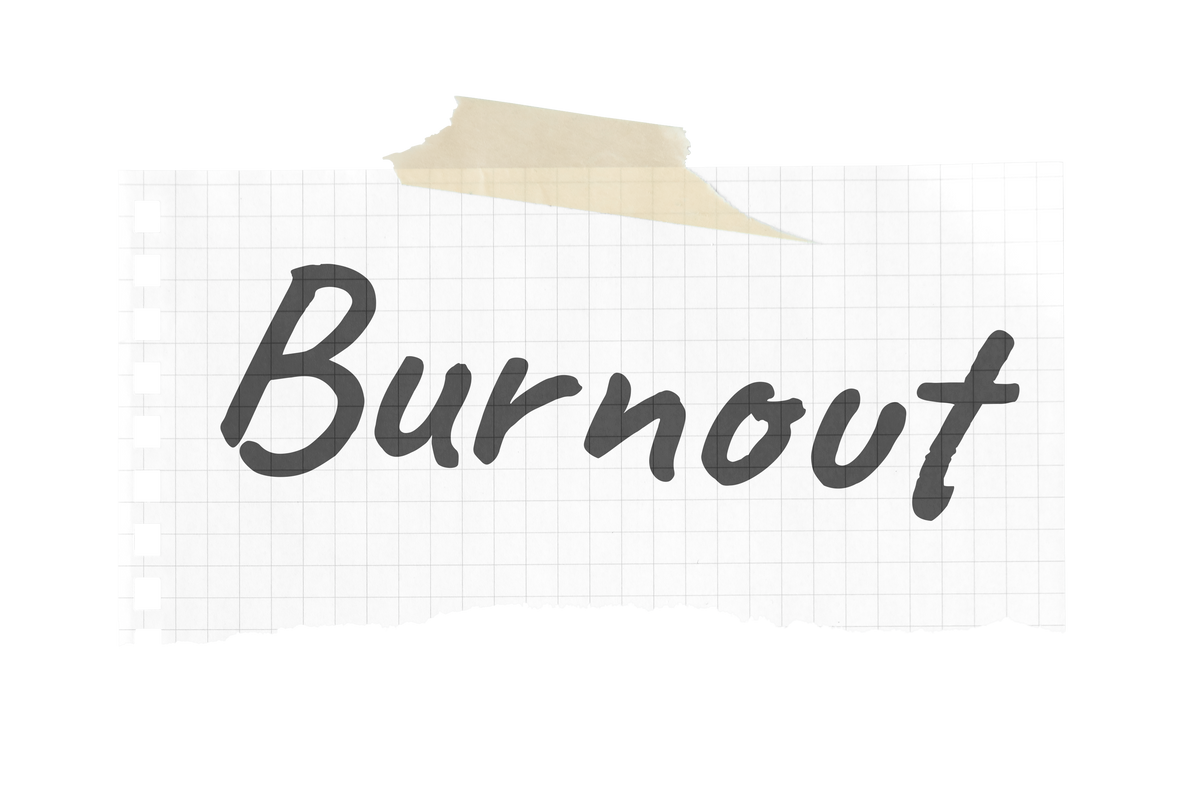
We all know managing stress is essential for staying productive and motivated at work. But it can be easy to fall into the trap of overworking when chasing success. The result is increased stress, which in turn leads to poorer productivity, which can lead to even more overworking. And if left unchecked, you might find yourself in a self-perpetuating cycle of increasingly more work with gradually decreasing returns, and the result is often burnout.
Thankfully, it doesn't have to be this way. Here we'll look at what burnout is, what the signs of burnout are, and reveal some measures you can take today to avoid burnout and stay productive.
How to Identify Burnout
Burnout describes the state of physical, mental, and emotional exhaustion that can occur after prolonged stress. Though it is often associated with work, it can occur for many reasons.
Burnout can manifest itself in several ways and won't always appear the same for every person. However, there are some common signs of burnout, which include:
- Feeling overwhelmed
- Feeling helpless, trapped, or defeated
- Feeling isolated or detached from others
- Constantly feeling drained
Studies show that around two-thirds of the workforce will experience burnout at some point in their careers. And with remote work becoming more common, many employees and entrepreneurs now find it difficult to "unplug" and find a healthy work-life balance.
Strategies for Avoiding Burnout
Practice Self Care
When you are stressed about work or life or have a long list of tasks on your to-do list, it can feel hard to step away and let yourself rest. Doing so can feel like failing yourself or like you are being lazy. But your body and mind need time to recuperate if you want to perform at your best. And constantly pushing through is a surefire recipe for burnout.
Tips for Practicing Self Care
1. Connect With Friends and Family
One of the best remedies for stress is to speak to somebody about it. But you don't always have a heart-to-heart to benefit from being around people. After all, humans are social animals. And depriving yourself of social interaction rarely works out well in the long run.
So, whether it's a day out with family, or a couple of drinks with friends, reconnecting with those you care about can leave you feeling refocused and reenergized.
2. Watch Your Diet and Exercise
Staying on track with a good diet and exercise can be challenging when your job consumes all your energy. And it can be easy to turn to fast, processed, on-the-go food instead. But unfortunately, this will not only do little to fortify your body but make you feel worse. Combine this with long days spent hunched over a desk, and your body and mind will soon falter.
You don't have to hit the gym every morning or spend hours perfecting recipes. But ensuring you get decent exercise and nutrition will keep your body in shape and improve your mood and concentration levels.
3. Get Enough Sleep
It can't be understated just how important getting enough sleep is for your overall health and well-being. And constantly pulling late nights will soon wreak havoc on your ability to function, let alone your mood. Also, be wary of the effects of caffeine, nicotine, and alcohol on your sleep quality and sleep cycles.
Create a Dedicated Workspace
Whether you're working at home, in an office, or elsewhere, your workspace should be your sanctum. After all, it's where you'll probably spend a lot of your time, so why should it look drab and dreary? Unfortunately, for many of us, it's where we feel the most stressed, distracted, and uninspired. But you can make some changes to make it a more exciting environment.
Tips for Creating the Optimum Workspace
1. Fill Your Space With Inspiration
Filling your desk area with your favorite things may initially seem quite childish. But incorporating your passions and motivations into your workspace can help you stay inspired.
Whether it means adding snippets of motivational quotes, pictures of friends, family, or historical figures you admire, or a little figurine that makes you laugh, make your workspace a place that welcomes rather than bothers you at the beginning of your day.
Remember that the idea here is to inspire, not clutter, so don't go too over the top.
2. Set Boundaries
Whether you work at home or in an office cubicle, setting boundaries with the people around you is crucial for staying productive. But it's also important to set boundaries for yourself, especially when it comes to distractions like phones, which are often best left off or out of the way entirely.
3. Make It Comfortable
Again, your workspace is where you are likely to spend hours at a time. So, if nothing else, it should be comfortable. A good chair with lumbar support is essential for anyone who works at a desk in the long term, as is a good level of lighting and temperature control.
One thing that people don't always consider is the level of noise at their workplace. And what is optimum for you will depend on personal preference. Some people, for instance, prefer silence, while others like to have a low background hum. Of course, if you're in an office space, there's only so much you can do to control noise levels. But where possible, tools such as noise-canceling headphones or relaxing music can help create an environment perfect for your needs.
Avoid Productive Procrastination
Few things are more disheartening than investing time and energy into a workday only to be left with little in the way of results. When this happens, it can be easy to trick yourself into thinking that working harder is the solution. But the problem may not be how hard you're working but what you choose to work on, as many of us fall into the trap of productive procrastination. That is the act of staying busy while still avoiding your most important tasks.
Top Tips for Avoiding Productive Procrastination
1. Learn How to Spot Productive Procrastination
Productive procrastination often doesn't look or feel like procrastination usually does. Indeed, it may feel like you're being productive at the time. But in reality, you're investing time and energy into distracting yourself with minor, low-level tasks that leave you exhausted and no closer to your goals.
If you constantly feel like you haven't achieved much at the end of a long, busy day, productive procrastination may be the cause. If so, it may be time to assess how you go about your work day.
2. Organize Your Priorities
Take a piece of paper and write down a list of your top five goals you currently want to achieve. Then write down all the tasks you regularly do each day. From there, identify 1-5 of the most vital tasks you do that will actively move you towards achieving your goals.
Once you've identified your most important tasks, make a point to do these tasks first each day before you move on to other less vital tasks. By prioritizing tasks like this, you ensure you don't procrastinate with less-important work.
3. Develop a Self Aware Mindset
Beginning challenging or daunting tasks is often the most difficult step to overcoming procrastination. As a result, it is vital to remain aware of the consequences of not performing necessary work and learn to spot when you're putting off a task with busy work.
Know When to Step Away
There are lots of things you can do to help combat stress, avoid burnout, and stay productive. However, it's also crucial that you know when to seek the help of others. If you're feeling under constant strain and completely overwhelmed, a conversation with a psychiatrist or doctor may be the next step. In any case, never put work or the desire to be productive above your mental health.





